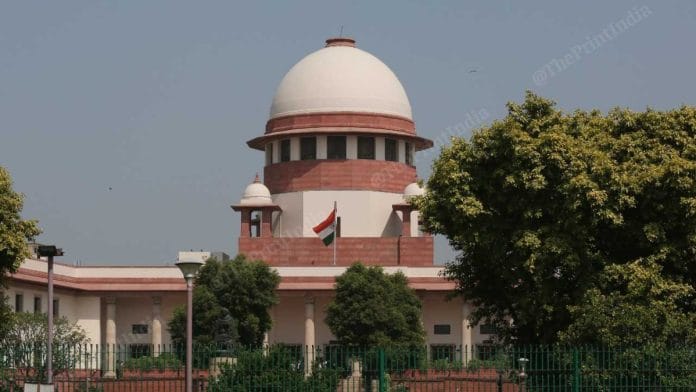New Delhi: A woman in Assam, who had been directed to go back before the Foreigner’s Tribunal to challenge the state’s claim that she was not an Indian citizen, received relief Tuesday. The Supreme Court held that once a tribunal has declared someone an Indian citizen, a co-ordinate bench cannot later review that decision in a separate proceeding.
A bench led by Justice Abhay S. Oka set aside a Guwahati High Court order that had refused to intervene with the Foreigner’s Tribunal decision to review its earlier order, which had pronounced the woman an Indian citizen. “The law does not allow the tribunal to review its own order,” the bench remarked, as it allowed an appeal filed by Rejia Khatun.
In doing so, the bench rejected the state’s opposition to Khatun’s appeal against the high court order of June 2023. The state’s contention that Khatun’s declaration was obtained by fraud was also dismissed.
Khatun, a resident of Tezpur, was facing two proceedings before two different benches of the Foreigner’s Tribunal at the behest of the state. While the first was initiated in 2012, the second was launched in 2016.
On 15 February, 2018, the bench hearing the proceedings initiated against Khatun in 2016 declared her an Indian citizen. All documentary as well as oral evidence was taken into account before the declaration was made. However, in December 2019, the co-ordinate bench before which the 2012 proceeding was pending refused to drop it, despite Khatun’s plea to do so.
It said the February 2018 order did not divest it of the power to adjudicate the issue afresh. This order was upheld by the Guwahati HC in June 2023.
“If there was fraud, the tribunal would have noted it. The tribunal gave its order after examining the evidence. The state was present (during the proceedings); you should have filed an appeal if there was any grievance. A co-ordinate bench cannot review the earlier order,” the court told the state lawyer when he urged the bench to uphold the HC order on the ground that fraud had been committed on the tribunal.
The state counsel also failed to convince the bench that he should be given the liberty to file an appeal against the 2018 order holding Khatun to be an Indian. He argued that the HC had not made any declaration but had simply remanded the matter to the tribunal for fresh consideration.
Unconvinced, the bench allowed Khatun’s appeal against the Guwahati HC order and ruled that once a declaration is made, it cannot be re-examined by a co-ordinate bench of the tribunal. The only legal remedy available to the state was to challenge the order before the HC.
Khatun’s lawyer, senior advocate Pijush K. Roy, argued that the tribunal was not competent to reopen the “very same issue” that it had already determined. He contended that this was against the principle of res judicata, under which a matter adjudicated by a competent court cannot be pursued further by the same parties.
Khatun’s appeal before the SC provided a list of documents on the basis of which the tribunal had declared her an Indian national. According to her, the HC should have independently assessed her claim of being Indian. The HC’s decision to remand the matter to the tribunal was erroneous, causing irreparable loss and injury. It was a whimsical rejection, done without reviewing the case record, she submitted in her petition.
The documents on which she had relied before the HC in support of her citizenship included the voter lists from 1966, 1975, 1977, and 1985, which contained her father’s name. She had also produced voters’ rolls for other years, containing the names of her father and other family members.
To assert her claim further, Khatun had also placed on record the voter lists of 1989, 1993, 1997, and 2014, in which her name was also included. Following the tribunal’s declaration in February 2018, Khatun had received a certificate issued by the government of Gaonborah, Tezpur in May 2019. This was the linkage document that established her relationship with her father.
Besides documentary evidence, an oral statement by her brother, who is an Indian citizen, was also recorded by the tribunal in support of her case. Ignoring all this evidence, the HC asked Khatun to return to the tribunal, where a fresh consideration regarding her citizenship was to be conducted.
Khatun also based her case on the Citizenship Act and Article 5 of the Indian Constitution. Her lawyer argued that as per Section 3 of the law and Article 5, Khatun, by virtue of being the daughter of an Indian citizen, is an Indian citizen.
(Edited by Radifah Kabir)
Also Read: ‘Reason to believe not guilty’ — What Jharkhand HC said while granting bail to Hemant Soren






